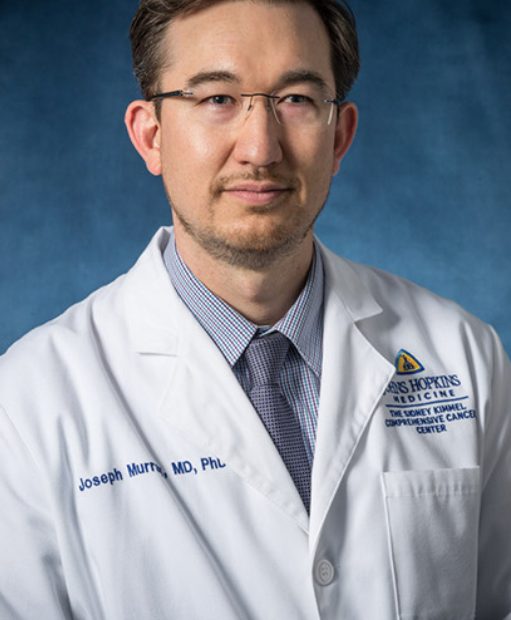New faculty member Joseph Murray, M.D., Ph.D., believes data holds the answers to many unsolved mysteries about esophageal cancer. Symptoms, imaging, outcomes, treatments received, and tests administered are among the information he would like to assemble to create a large matrix of data on each patient to better understand how patients get cancer, their responses to treatments, and the complications they suffer.
He’s dubbed the repository the Thoracic Cancer Data Commons. It includes data provided by more than 21,000 patients with lung cancer, esophageal cancer, mesothelioma, and other thoracic cancer diagnoses.
“I want to delve into and find out what features and characteristics of a patient’s clinical course can lead us to better outcomes,” says Dr. Murray. “I envision a learning health system where data is its own laboratory, expanding our knowledge of these cancers and helping us characterize and treat patients more precisely.”
When it comes to esophageal cancer, he says they are charting a new frontier. Unlike lung cancer, another more common thoracic cancer, there is less known about biomarkers that can guide therapy and cancer features driving the cancer that can be targeted with drugs. Opportunities to learn these things abound, and Dr. Murray, who is co-director of the Lung Cancer Precision Medicine of Excellence, is using that model, which dramatically expanded treatment options and improved outcomes, to make similar advances against esophageal cancer.
Dr. Murray describes it as data-driven precision medicine, where care is tailored to the unique features of each patient’s cancer. Analysis of the data, among other things, will help Dr. Murray and colleagues determine which patients will benefit from a particular drug or treatment and which ones will not distinguish patients who may need more intensive therapies from those who will likely be cured with the standard of care.
Although precision medicine is individualized care, data also reveals patterns and commonalities among patients providing a formula for predicting and preventing toxicities and side effects and guiding treatment decisions.
In collaboration with Dr. Vincent Lam, Dr. Murray is using tools, such as liquid biopsy, to gather detailed data on genetic alterations in esophageal cancer and evaluate how the genetic variations drive disease changes over time. These studies may, for example, make it possible to observe cancer-driving changes that can be targeted with a drug therapy or identify a cancer that is transforming into one that is resistant to a particular treatment.
Liquid biopsy detects DNA shed from cancer cells in blood and body fluids. When it reveals cancer cells still present after a curative-intent treatment, it could be a warning sign that a cancer is likely to recur, long before a tumor is visible on imaging. These patients may benefit from additional treatment, including research studies of novel treatments. If cancer cells are not present after treatment, it provides a good indication that the cancer is cured, and these patients could be spared additional therapy and its toxicities.
“Learning from our patients is the most important thing, and I want to look at every avenue for opportunities to improve outcomes,” says Dr. Murray. If the answers are in the data, then it follows, he says, that the more data we gathered and analyzed, the more rapid discovery of better roadmaps for care.
